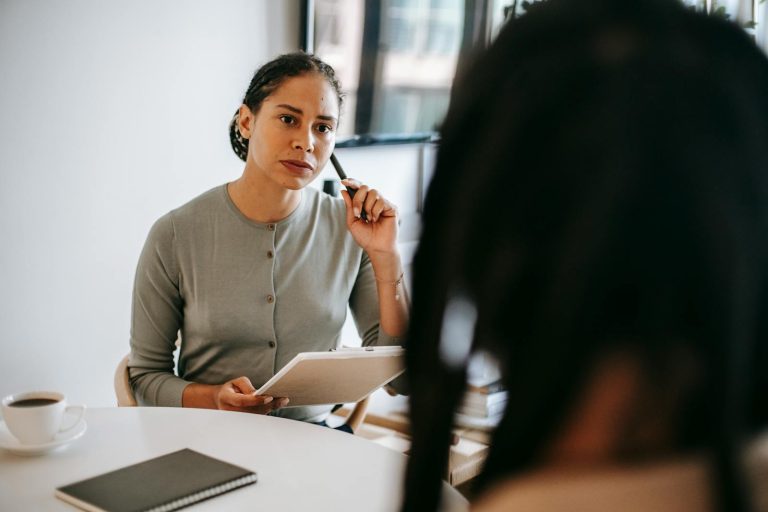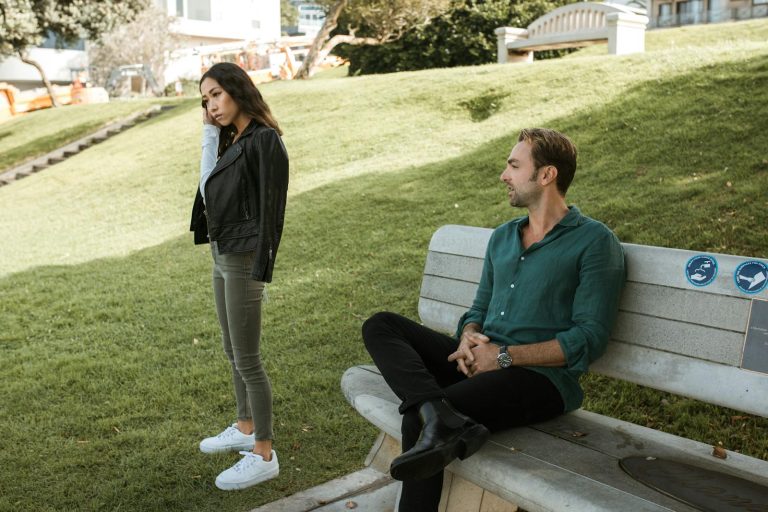Domestic violence is a terrifying reality that shatters families and wreaks havoc on lives. As experienced Tampa Divorce Attorneys, we understand how difficult it is to navigate divorce when abuse is involved. Many struggle with the fear of leaving their abusers, unsure of what legal options they have. We aim to provide compassionate guidance and expert legal support to help you escape the cycle of abuse and reclaim your life.
As stated in WomensLaw.org, domestic violence can be a valid ground for divorce. The court may consider the abuse when dividing property and deciding on child custody. Victims should gather evidence and may need the support of legal advocates.
What Is Domestic Violence in Marriage?
Domestic violence in marriage involves one partner exerting control and dominance over their spouse using methods such as physical, emotional, verbal, sexual, or financial abuse.
Generally speaking, this kind of violence can really hurt a person, both physically and mentally, causing fear, loneliness, and low self-esteem. It can happen in any relationship, no matter the gender, age, or background of the people involved. Domestic violence isn’t just about hitting; it can also be about threats, intimidation, and stalking.
To outline briefly, it’s important for people who are experiencing domestic violence to get help from friends, family, or support services to stay safe. Remember, it’s not the victim’s job to change the abuser, and asking for help is not a sign of weakness. Domestic violence is a serious problem that can have long-lasting effects, so it’s very important to take steps to protect yourself from further harm.
How Domestic Violence Affects Divorce
Domestic violence often accelerates divorce proceedings and can determine custody outcomes.
As a rule, domestic violence can hurt a marriage and affect things like child custody and spousal support. If there is abuse, the safety of the victim and any kids must come first. The victim can ask for a restraining order to keep the abuser away during the divorce.
In other words, the court will consider the abuse when deciding who gets the kids and how much time they spend with each parent. Sometimes, the abuser has to go to counseling or anger management. Domestic violence can also leave emotional scars that might need therapy to heal. Victims should get help from professionals to stay safe and manage the divorce process.
Steps to Take if You’re a Victim
As we’ve established previously, if you are a victim of a crime or any form of harm, you can immediately access various resources and support systems designed to assist and protect you.
Essentially, first try to get away from the situation to stay safe. If you’re hurt, go see a doctor.
Next, tell the right people about what happened, like the police or your boss. Give them all the details and any proof you have. This helps make sure the person who did this gets in trouble.
At the base, talking to friends, family, or a counselor can help you deal with your feelings. You can also contact groups or hotlines that help victims of crime for more support.
Remember, you’re not alone. There are people ready to help you through this tough time. By following these steps, you can start to heal and seek justice.
Legal Rights in Domestic Violence Divorce

Building on what was said earlier in domestic violence divorce cases, victims have legal rights designed to prioritize their safety and well-being.
Simply put, these rights include getting a protection order to stop more abuse, asking for custody of children to keep them safe, and receiving financial support like alimony or child support. The victim can also decide how to divide assets and property, and they can choose to press criminal charges against the abuser.
Generally speaking, the victim needs to get legal help to understand the legal process and protect their rights. Knowing and using these legal rights in cases of domestic violence during a divorce is very important for the safety and justice of the victim and their children.
Seeking Support and Resources
As we previously pointed out reaching out to others for help can significantly improve your chances of successfully overcoming challenges.
In other words, you can talk to friends, family, or professionals for help and advice. It’s also a good idea to look into different options that might help with your problems or goals. Getting support and finding resources can give you useful information, new connections, and services to help you through tough times or achieve what you want.
In the most basic sense, it’s important to know that it’s okay to ask for help; many people and groups are ready to assist those who need it. By asking for help and being active in looking for solutions, you can improve your situation and feel better.
The Final Thoughts
In our earlier discussion in light of the detrimental effects of domestic violence on individuals and families, it is evident that divorce can be a necessary step towards ending the cycle of abuse and ensuring the safety and well-being of survivors.
What Tampa Divorce Attorney is guiding you through is, that seeking support from professionals and resources is very important in navigating the various problems that may occur in this challenging situation and working towards a brighter, violence-free future.







